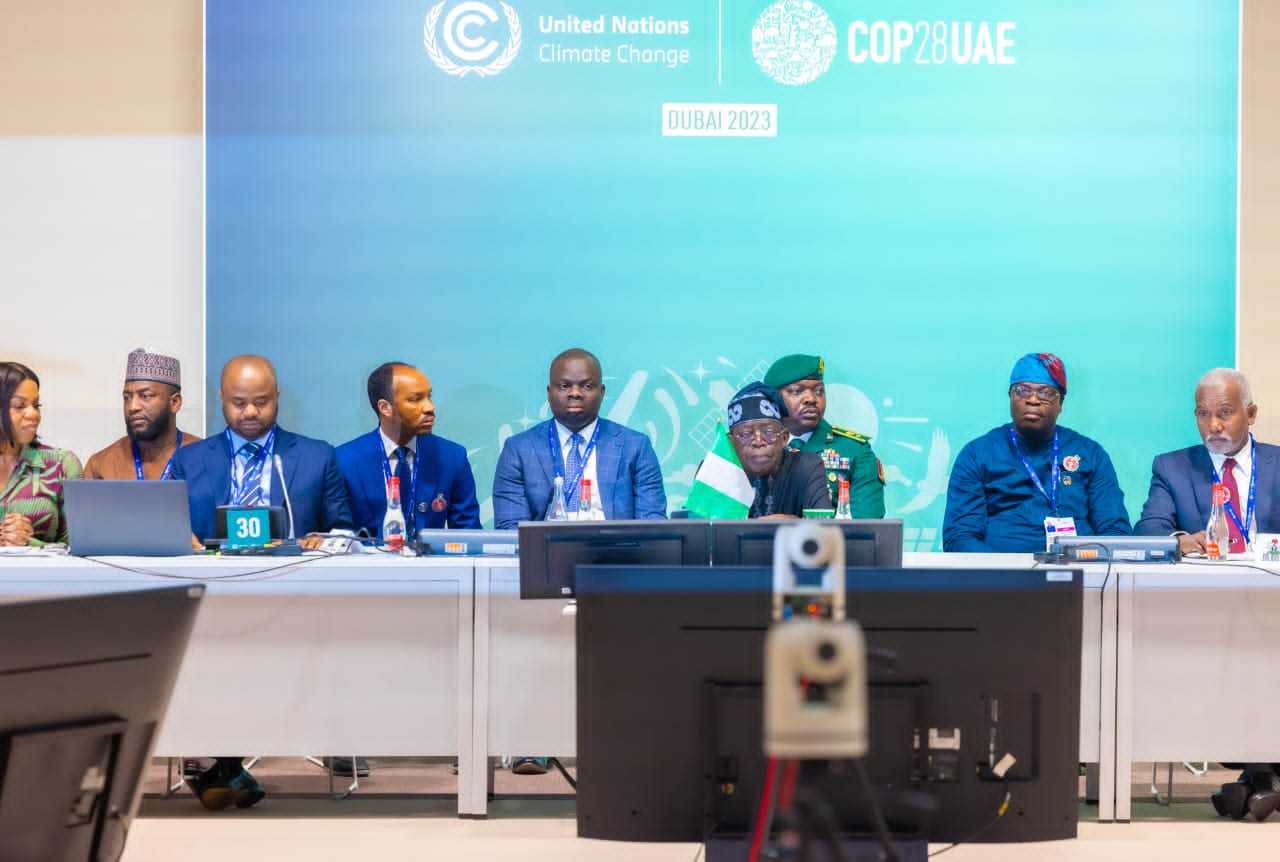Amidst ongoing discussions at the United Nations Climate Change Conference (COP28), in Dubai, Nigeria’s Minister of Humanitarian Affairs and Poverty Alleviation, Betta Edu, announced a significant collaboration with the United Arab Emirates (UAE), to establish humanitarian response stations across the country.
The move aims to provide swift assistance to victims of disasters, particularly in regions affected by insurgencies.
In a press briefing with State House correspondents, Minister Betta Edu revealed that Nigeria sought the assistance of the UAE to address humanitarian crises stemming from insurgencies, notably in the north-east, and to combat widespread poverty in various parts of the nation.
Edu shared that discussions with the UAE government included interactions with the Minister for Tolerance and the President’s brother.
She emphasized the UAE Red Crescent’s commitment to constructing a resilient humanitarian response system across Nigeria, akin to the functions of the Red Cross.
The minister attributed the humanitarian crises and poverty in Nigeria to the impacts of climate change, pointing out that climate-driven factors have led to insurgency and security challenges in the country.
Edu highlighted her ministry’s role at COP28, emphasizing the need to secure support for job creation, poverty alleviation programs, and climate change adaptation to prevent natural disasters that contribute to humanitarian crises.
Edu stated, “Climate change is very critical and central to what the Ministry of Humanitarian Affairs and Poverty Alleviation does. Most of our humanitarian crises are as a result of climate change and most of the poverty which we are tackling is a result of climate change.”
In a separate interview, Nigeria’s Minister of Environment, Balarabe Lawal, echoed the sentiment that climate change and its consequences are primarily the result of actions by developed nations responsible for significant greenhouse emissions. He expressed optimism about COP28, highlighting the focus on adaptation, mitigation, and the crucial issue of loss and damage.
Minister Lawal emphasized Nigeria’s determination to advocate for positions beneficial to the country and its people, with a focus on addressing issues such as desertification, coastal erosion, and other climate change-related challenges. He commended the determination of the current president of COP and conveyed President Bola Tinubu’s expressed sentiments at the conference.
As Nigeria actively participates in COP28, discussions are expected to center around securing support for climate change adaptation, mitigating the impacts of climate-induced crises, and addressing loss and damage caused by climate change.
The delegation aims to present Nigeria’s perspective on various climate change-related issues for the benefit of vulnerable nations, including measures for carbon grading, mitigation, and financial support for affected regions.



